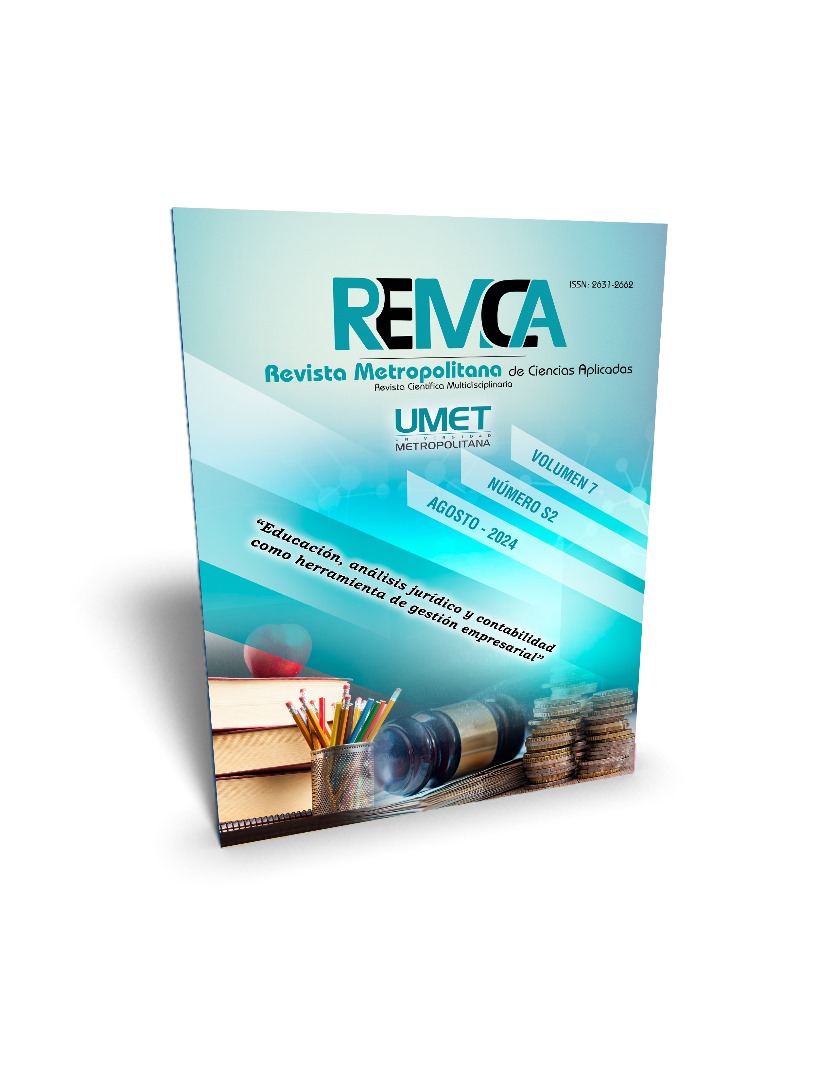Ethical perspectives in the application of IFRS: a critical analysis in the mining sector
DOI:
https://doi.org/10.62452/f5vcpg71Keywords:
Ethics, manager, accounting, corruption, standardsAbstract
This study focused on examining the importance of accounting ethics in the integrity and transparency of accountants, as well as the ethical challenges related to the adoption of International Financial Reporting Standards (IFRS). It was conducted through a comprehensive literature review and analysis of survey data. The findings highlighted the conclusive role of accounting ethics in ensuring confidence in financial reporting and fostering professional responsibility in the accounting field. In addition, a direct connection was identified between transparency in financial reporting and effectiveness in fraud prevention, as well as a correlation between the appropriate adoption of IFRS and regulatory compliance. It is concluded that, accounting ethics are necessary to promote responsible accounting practices and maintain the reliability of financial reporting.
Downloads
References
Agudelo Vélez, M. A., & Londoño Cossío, A. M. (2022). Ética y realidad económica: dilemas entre lo justo y lo legal para los contadores públicos. Discusión de algunos casos en la ciudad de Medellín. Revista Visión Contable, (26), 127–171. https://doi.org/10.24142/rvc.n26a7
Bedoya-Parra, L. A., Sánchez-Mayorga X., & Sánchez-Cabrera S. (2021). Ética y responsabilidad social como mecanismos de formación integral para el ejercicio profesional del Contador. Entramado, 17(2), 146–161. https://doi.org/10.18041/1900-3803/entramado.2.7829
Castillo Padrón, Y., Baute Álvarez, L. M., Silva López, C. A., Fernández Rangel, L., & Seoane Rodríguez, L. M. (2020). La formación ética desde la institución universitaria. Una propuesta para el estudiante de la Licenciatura en Contabilidad y Finanza. Revista Universidad y Sociedad, 12(4), 135-139. http://scielo.sld.cu/pdf/rus/v12n4/2218-3620-rus-12-04-135.pdf
Consejo de Normas Internacionales de Ética para Contadores. (2009). Código de ética para profesionales de la contabilidad. IAASB. https://www.ifac.org/_flysystem/azure-private/publications/files/codigo-de-etica-para-profesionales-de-la-contabilidad.pdf
De Nobrega, F. (2009). Ética y tendencias de la disciplina contable. Actualidad Contable Faces, 12(19), 19-27. https://www.studocu.com/es-mx/document/universidad-abierta-y-a-distancia-de-mexico/etica/etica-y-tendencias-de-la-disciplina-contable/13720266
González, L., Murcia, R., & López, E. (2016). Análisis sustantivo: Impacto de la ética en el mundo empresarial contable. Horizontes de la contaduría, 5, 75-85. https://www.uv.mx/iic/files/2018/02/Num05-Art06.pdf
Mantilla Falcón, M., & Urbina Núñez, A. (2023). Investigación y formación contable en Ecuador. Una aproximación a su realidad actual. Cuadernos De Contabilidad, 24, 1–17. https://doi.org/10.11144/Javeriana.cc24.ifce
Marlasca, A. (2005). El origen de la ética: Las raíces evolutivas del fenómeno moral en F. J. Ayala. Revista de Filosofía de la Universidad de Costa Rica, 43, 21-26. https://revistas.ucr.ac.cr/index.php/filosofia/article/view/7493/7164
Pinzón Alfonso, R. H., & Serrato Guana, A. D. (2021). El dilema ético del contador público en Colombia. Una reflexión sobre su función social de garantizar la confianza pública. Cuadernos De Contabilidad, 22, 1–10. https://doi.org/10.11144/Javeriana.cc22.decp
Rodas, F., & Villamar, W. (2022). La ética en la práctica contable. Su influencia en una buena gestión. FIPCAEC, 7(1), 506-524.
Downloads
Published
Issue
Section
License
Copyright (c) 2024 Silvia Consuelo Argüello-Avalos, Carmen Yolanda Jaramillo-Calle (Autor/a)

This work is licensed under a Creative Commons Attribution-NonCommercial-ShareAlike 4.0 International License.
Authors who publish in Revista Metropolitana de Ciencias Aplicadas (REMCA), agree to the following terms:
1. Copyright
Authors retain unrestricted copyright to their work. Authors grant the journal the right of first publication. To this end, they assign the journal non-exclusive exploitation rights (reproduction, distribution, public communication, and transformation). Authors may enter into additional agreements for the non-exclusive distribution of the version of the work published in the journal, provided that acknowledgment of its initial publication in this journal is given.
© The authors.
2. License
The articles are published in the journal under the Creative Commons Attribution-NonCommercial-ShareAlike 4.0 International License (CC BY-NC-SA 4.0). The terms can be found at: https://creativecommons.org/licenses/by-nc-sa/4.0/deed.en
This license allows:
- Sharing: Copying and redistributing the material in any medium or format.
- Adapting: Remixing, transforming, and building upon the material.
Under the following terms:
- Attribution: You must give appropriate credit, provide a link to the license, and indicate if any changes were made. You may do this in any reasonable manner, but not in any way that suggests the licensor endorses or sponsors your use.
- NonCommercial: You may not use the material for commercial purposes.
- ShareAlike: If you remix, transform, or build upon the material, you must distribute your creation under the same license as the original work.
There are no additional restrictions. You may not apply legal terms or technological measures that legally restrict others from doing anything the license permits.




